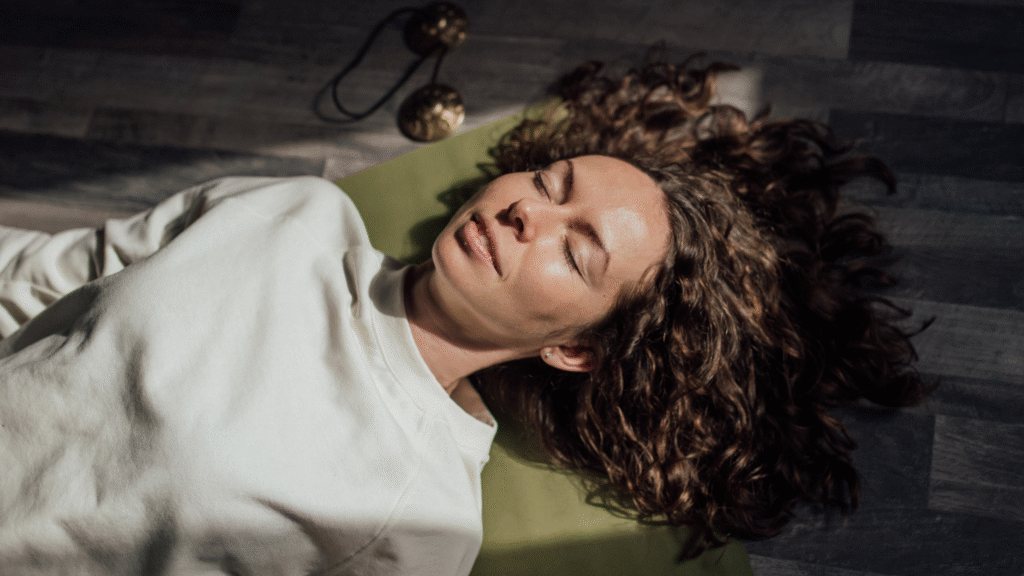Yoga is not a performance.
(Photo: Canva)
Published September 30, 2025 01:48PM
You know that small, quiet panic that shivers through you when it feels like someone is watching you? Butterflies in your stomach, goosebumps, perhaps a sheen of sweat? Like you’re onstage, even if that “stage” is just a public sidewalk?
I used to get that feeling in yoga class. For nearly a decade, I approached each practice as a place of success and failure, all while believing that everyone present was bearing witness to, and judging, my every pose.
Spoiler: they were not. And releasing this false belief was the best thing I could have done for my practice.
On your mat is arguably the last place that you should have to feel “on.” Yoga is not meant to be performative—in fact, transforming your practice into a show for others is somewhat antithetical to the overall philosophy. But it turns out that knowing this intellectually and actually believing it are two very different things.
I started practicing yoga in high school, an era of theater class, team sports, and grades. Yoga accompanied me to college, offering a respite amid semesters supplemented with internships and part-time jobs. Although the melding of breath and movement did calm my mind, I was never able to let go of the idea that I was putting on a show for everyone in class. Each and every person in the room noticed my oversized tee and pilled leggings. Everyone was impressed by my stance in Warrior II. If I flowed through class with grace, never once stumbling, I walked out of the studio like a goddess—if not, I exited an unworthy mortal.
The worst part about this habit of mine is that, since I’ve never been particularly bendy, my practice was rarely a picture-perfect event. The ratio of goddess-to-mortal days was inherently unbalanced, which kept me away from the studio for long stretches of time.
It wasn’t until completing my 200-hour yoga teacher training this past spring that I truly understood that my practice is, and always has been, an entirely personal endeavor. Deepening your yogic knowledge in a small cohort means that you are watching each other, but in an effort to understand. It calls for vulnerability and a quieting of the ego. Because if you can’t get real about the way you show up on your mat, how can you ask others to do so authentically?
But even in that microcosmic container, my fellow student-teachers were ultimately focused on their own practice—not mine.
As it should be!
No one cares that I can’t touch my toes. No one will ever applaud when I enter Half Moon with utter ease. The quality of my breathing may be evident to my teacher, but the only experience it really affects is my own. And as for the way I feel when yoga class wraps? I’m learning that a mortal who holds her head high in spite of imperfections is more powerful than a goddess who can never be vulnerable.


